A major part of the job for any municipal clerk is keeping the city council and residents up to date on what is going on in the city.
Many clerks aim not just to meet the requirements of the state’s Freedom of Information Act — which details what must be made available to the public and when — but help their fellow residents stay informed about what their elected representatives are doing. For most clerks, the process of preparing meeting agenda packets and information for the public is a well-oiled machine. Many municipal websites allow the public to access everything online, including minutes of previous meetings and even recordings of full meetings that are frequently livestreamed on the internet.
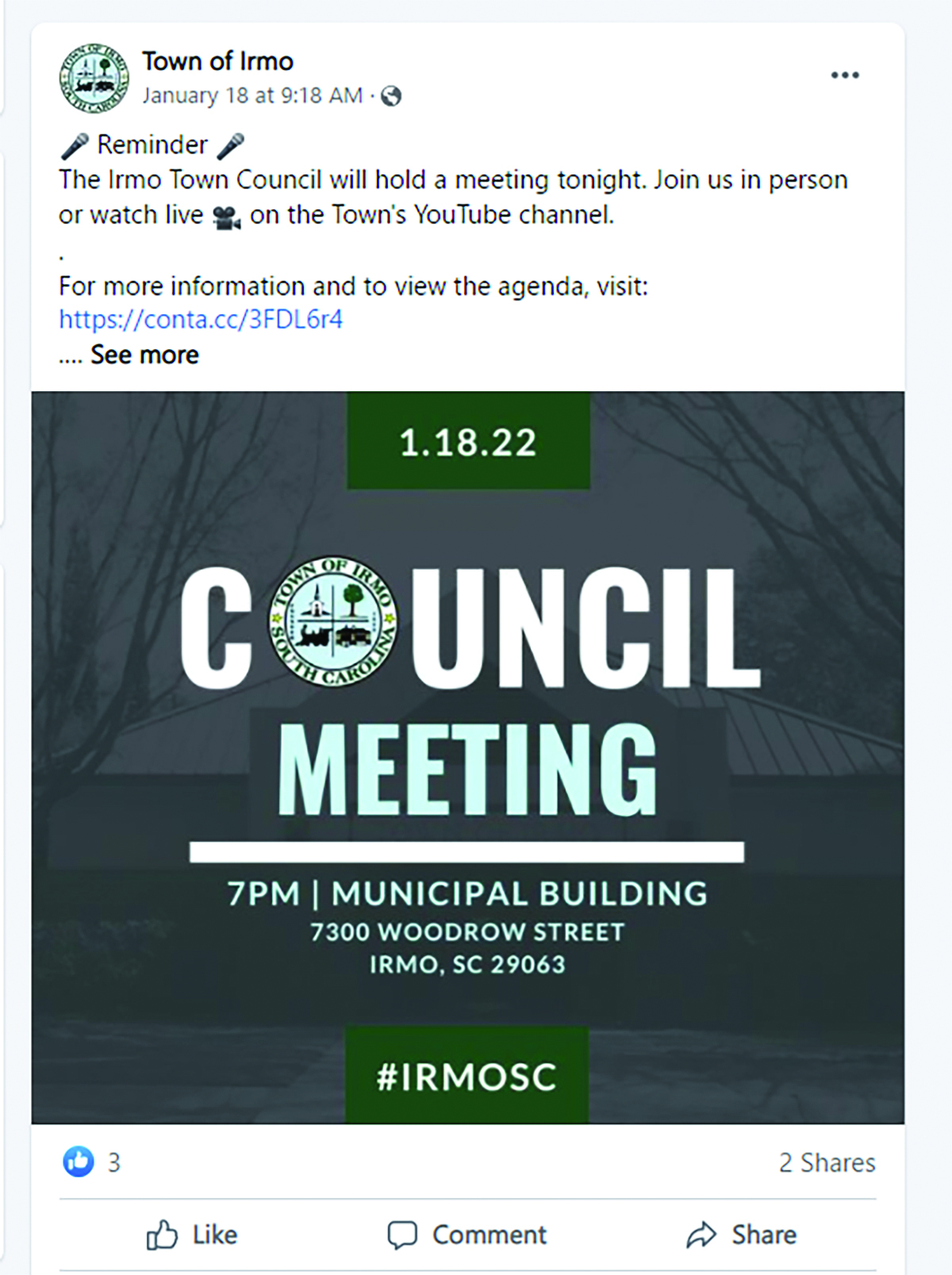
The Town of Irmo previews public meetings, including agendas, on social media.
“Council wants to be as transparent as possible and that’s what the public wants,” said Renee Caviness, Irmo’s town treasurer and clerk. “It makes it easier for everybody if they can go and get it at their fingertips.”
In her five years as Irmo’s town clerk, Caviness said she has tried to improve the availability of information for the public and has taken on digitizing projects as time has allowed.
“We were a little archaic, but I am slowly getting us there,” she said.
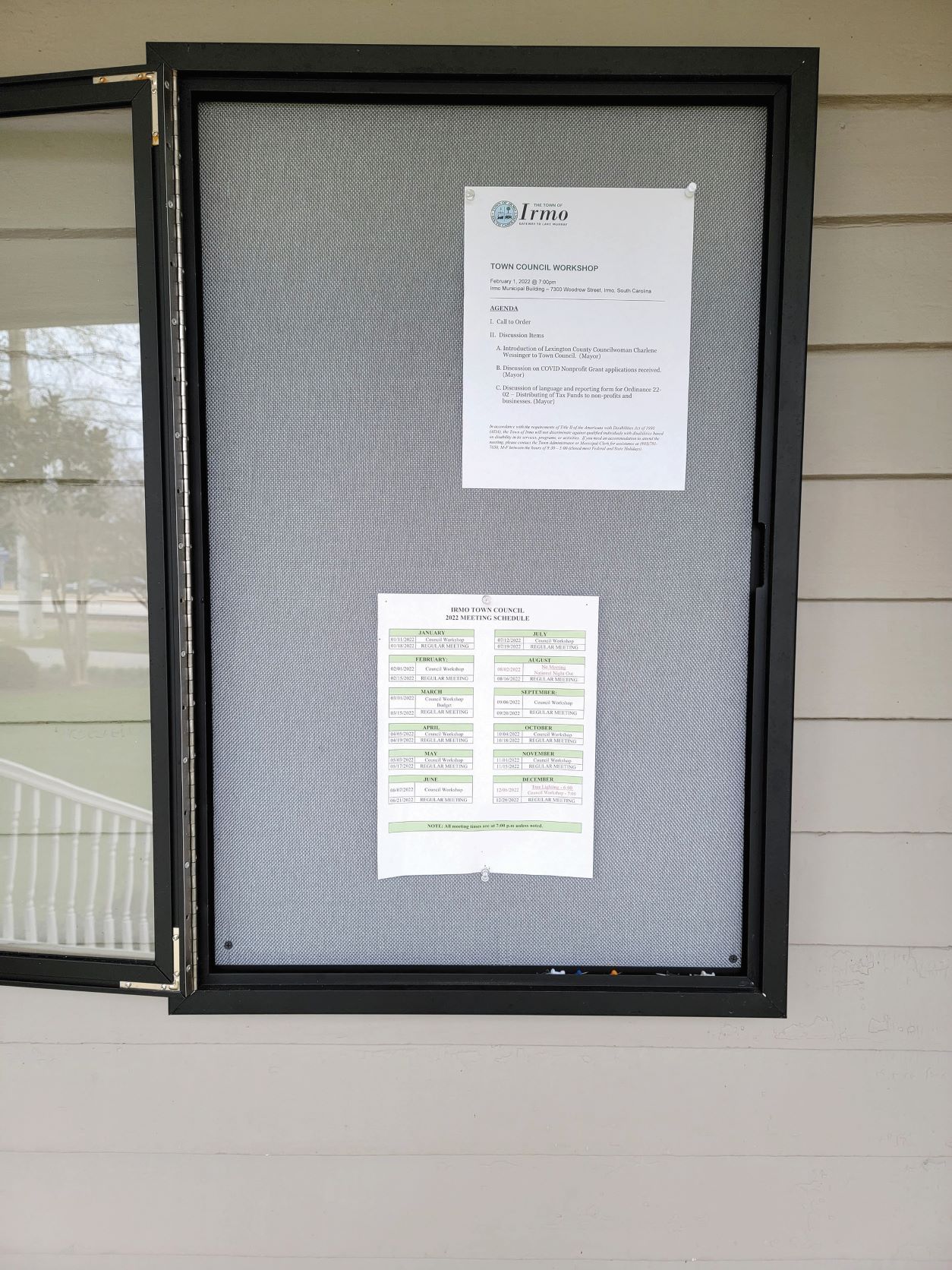
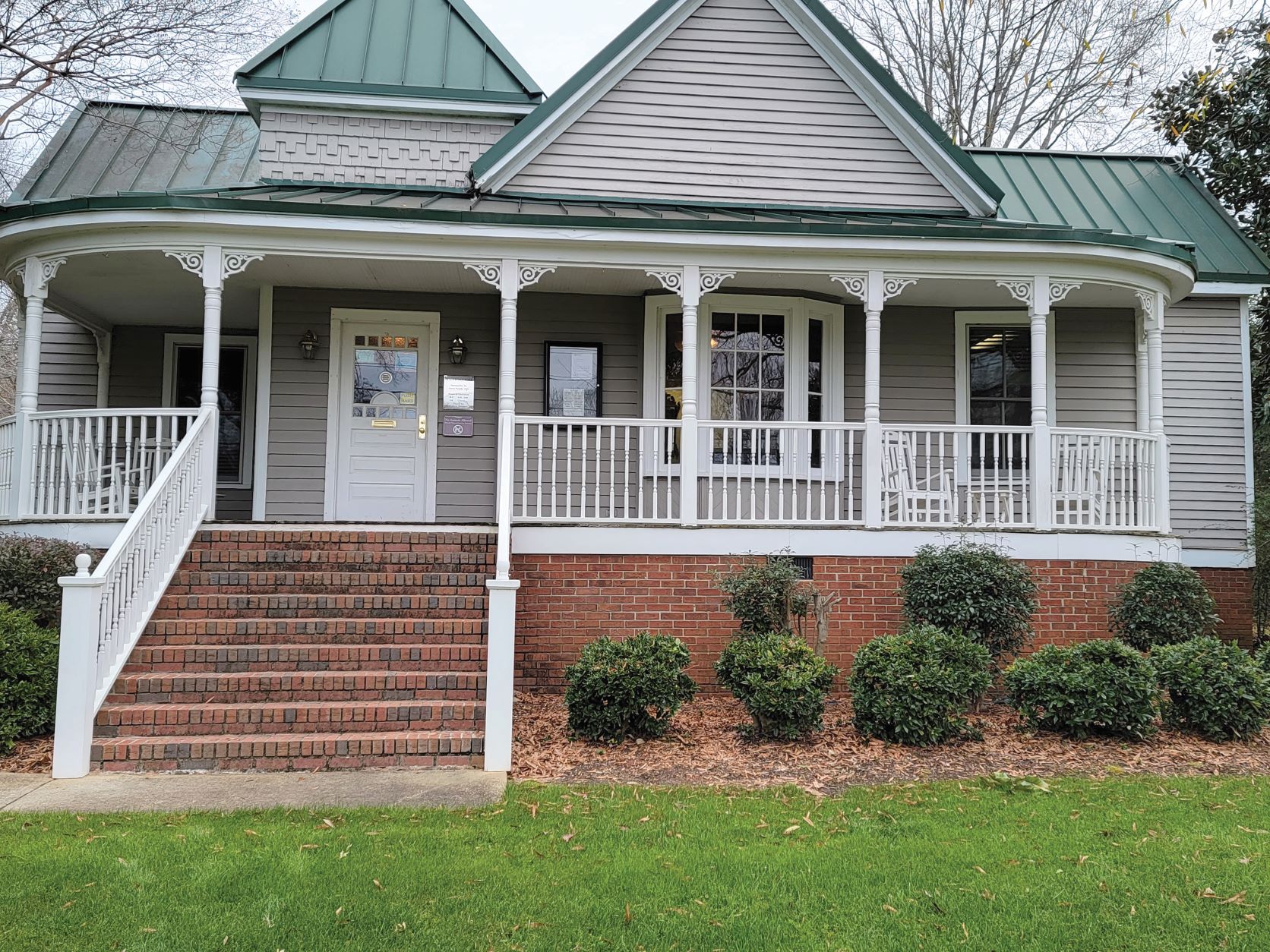
Irmo posts its meeting agendas on a bulletin board by the front door of its town hall. Photos: Town of Irmo.
Her method is to compile and email a complete packet to council members that includes the same materials as the public packet, except support materials protected by FOIA exclusions. The public packet goes on the town’s website, which fulfills a FOIA requirement that any municipality with a website must post agendas on the site at least 24 hours in advance, the same as with the physical posting of the agenda.
The packet also goes on a platform called Municode, which helps cities and towns organize their ordinance books, meeting notices, agendas, minutes and other public material. Anyone can search for a particular issue on the town’s Municode site and find details on any ordinance.
The town administrator also helps by adding a brief “plain language” description of agenda items. Instead of simply noting the ordinance or zoning regulation number, for example, the agenda includes a brief description of what the ordinance does and what change is being considered.
The town also is adding agendas, minutes and meeting recordings for the planning and zoning commissions. The town also plans to begin including information on meetings for its annual festival, the Okra Strut, which receives funding and other support from the town. The town has posted the festival committee’s agendas, but now will begin more extensive postings to include minutes and video of meetings.
“We have definitely been transparent, but we are wanting to be more transparent with the meetings,” Caviness said.
Transparency is also the goal for Travelers Rest, said Lori Sondov, city clerk and treasurer.
“We always want the public to know what’s going on and for them to be informed,” she said. “We put everything out there for them to see and they can access it via the website.”
For Sondov, that means preparing agenda packets for standing committee meetings each month, followed by agenda packets for the full council meetings. In the case of Travelers Rest, that also means publishing an agenda two days ahead of the full council meeting, rather than the 24 hours required by law.
“This was established a number of years ago in our code,” Sondov said. “We have to get ourselves together a little faster.”
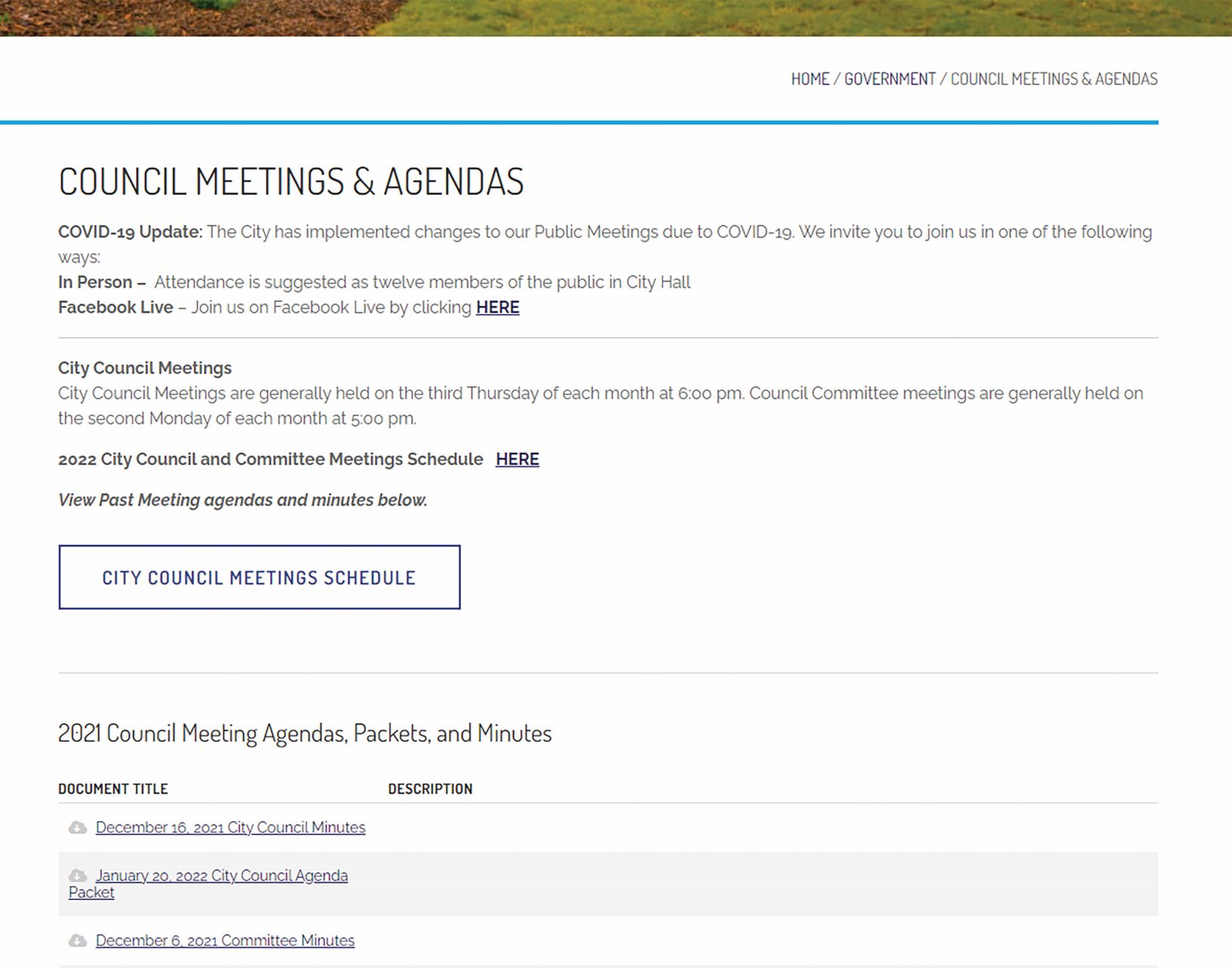
The council meetings page of the Travelers Rest website links to agenda packets, the annual notice of meeting dates and Facebook Live video streaming of meetings. Photo: City of Travelers Rest
Typically, Sondov and the town administrator will put the draft agenda together based on the standing committee meetings, then send it to department heads and councilmembers for review. A final agenda goes back to the council members and department heads, and also goes onto the city’s website. The agenda is sent to local media — another FOIA requirement.
The Travelers Rest standing committee meetings are where a lot of questions get asked of department heads — like the police chief.
“A typical question is how is the crime rate at the local Walmart doing,” she said. “Those meetings provide a lot of information to the public.”
All that information gets rolled into the agenda packets for the full council.
The time between standing committee meetings and council meetings is a little more compressed in Summerville.
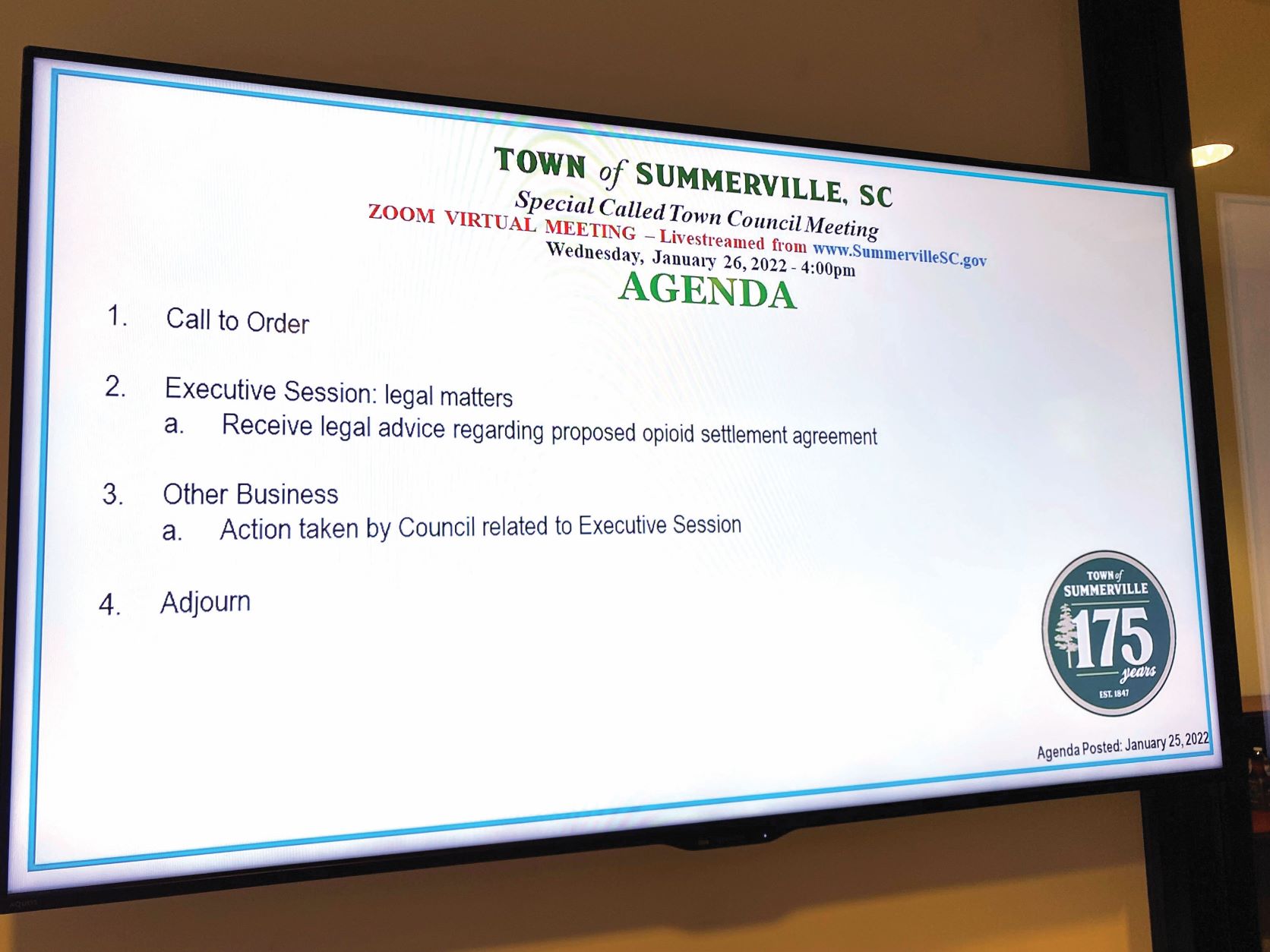
Summerville uses a display screen to post upcoming agendas.
Photo: Town of Summerville.
“I am actually working with two agendas and sets of minutes at the same time,” said Beth Messervy, Summerville town clerk. “I give everybody a deadline to get everything on the agenda then I review it with the mayor, the town attorney and our town administrator.”
That group meeting to discuss the agenda is one of the tweaks Messervy has made to the process during her four years as clerk. When she first started, she only met with the mayor before making a draft agenda, but found he had questions she couldn’t answer.
Messervy publishes the agenda packets for that Monday meeting on Friday afternoon — well ahead of the 24-hour deadline. She also sends council members an agenda draft to give them time to look it over before she first makes it public.
“We get pretty specific with the wording on our agendas because people ask questions about it and post on Facebook and speculate about what the topic is going to be,” she said.
Messervy said her agenda packets include the minutes from previous meetings as well as any documentation that needs to go with zoning and annexation requests. If the council is voting on a contract, the final draft will likely be in the packet, as well as any ordinances that are being amended.
“We just kind of throw everything in there, so sometimes, it can be like an 80-page document,” she said. “We are trying to be as transparent as possible and trying to give the public as much information as we can ahead of the meetings so they are well informed if they have a question.”
